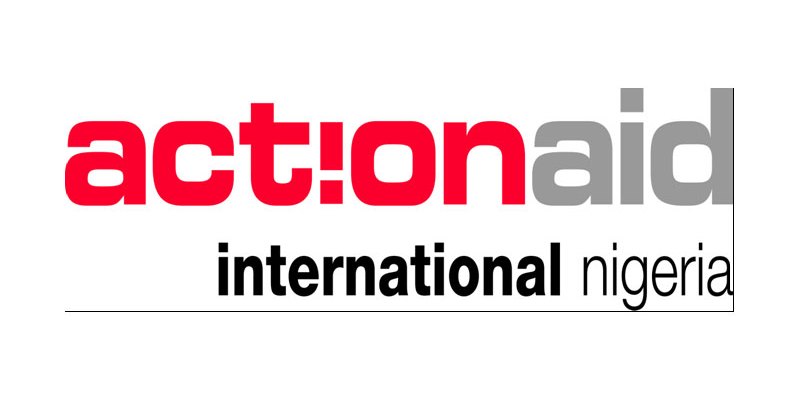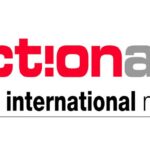The ActionAid Nigeria (AAN) has said that the Strategic Partnership Agreement (SPAII) project will be implemented in Lagos (Southwest), the Federal Capital Territory (FCT) (North Central), Bay states of Borno, Adamawa and Yobe (Northeast), Akwa-Ibom (South South), and Enugu (Southeast).
The project among others was to strengthen existing youth development policies and evolve new ideas to empower the nation’s youth and other vulnerable in the country to be self-reliance.
- ActionAid tasks FG, states on girl-child education
- ActionAid, others want lawmakers, political appointees’ salaries slashed
Speaking at the inception workshop of the SPA II Project Tuesday in Abuja, the AAN Country Director, Ene Obi, said that the workshop was aimed at notifying all stakeholders about the project and will provide the foundation for building collective understanding on the goals of the project and the necessary actions required to achieve the goals.
She was represented by the Director, Research, Mobilization and Innovation, AAN, Mr. Andrew Mamedu.
She said that the overall objective of the SPA II programme was, “Strengthened capacity, space and diversity of youth organizations, movements, and alliances to act, influence and advocate for increased realization and accountability for the rights, standards, and goals that duty bearers have agreed to and adopted, primarily the Sustainable Development Goals (SDGs) and Human Rights and significant results were achieved towards this in terms of strengthening capacity and influence of youth.”
According to her, strengthening capacity and raising awareness of key constituents was central to the theory of change of the global tax programme, which saw local communities, trade unions and especially women and youth as change makers in addressing injustices and inequalities in the society.
She said, “During SPA I, the programme finalized the Reflection Action Toolkit (RATK), which provides concrete and simple tools and exercises that are tailored for community groups and local facilitators to be able to engage in influencing processes around tax justice.
“Working with local partners is a core element in enhancing sustainability and efficiency, not only by reducing implementing costs, but also by supporting the capacities, experiences, and technical competencies of partners, and by strengthening already existing structures at local, and national level through engaging actively in networks and alliances.
“Equally, the training and capacity building of young people and constituents and supporting them in conducting evidence-based advocacy to gain influence on the development of their communities was core to contributing to sustainability, and this will be carried forward into the programming of SPA II.”
She also said that the overall objective of the programme was to improve realization of basic human and democratic rights and improved, sustainable livelihoods, resilience and protection for young people, especially young women living in marginalization, including in disaster and protracted crises contexts in Nigeria as contained in SDGs 1, 5, 8, 10, 13, 16 and 17.
Obi said, “In Nigeria young people between age 18 to 35 constitute about 28 percent of the entire population, and 51percent of the registered voters. However, young people are largely marginalized from governance and decision-making spaces.
“Young women face multiple challenges, according to worsening statistics on low literacy levels, maternal mortality, gender-based violence, economic and financial exclusion, low-income levels and limited access to land and natural resources.
“Furthermore, inter-sectional feminist analysis shows that discriminatory laws, patriarchy, cultural norms, and gender stereotypes contribute to structural inequalities faced by young women.
“Natural disasters intensified by climate change, conflict and recently COVID-19 pandemic have taken devastating toll on young women and their ability to cope and transform their livelihoods.”
She lamented that Nigeria is faced with insurgency in the Northeast and in Lake Chad corridor, and a climate change induced resource crisis as seen with the spate of communal and farmer-herder crises.
“In this context, AAN’s SPA II is targeting young people, especially young women, defined as aged 18-35 years.
“Nigeria has the biggest economy on the African continent, yet 43 percent of the population lives in extreme poverty. For young Nigerians, the socioeconomic and security situation, COVID-19, and climate change impact have served a toxic mix of high unemployment, loss of livelihood and despondency.
“Other factors causing poverty for young people and particularly young rural women, include skills gaps, limited economic opportunities, restrictive and discriminatory economic policies.
“Young women’s opportunities are significantly hampered by restrictive gender norms and traditional harmful practices, such as early and forced marriage and early school dropout.”

 Join Daily Trust WhatsApp Community For Quick Access To News and Happenings Around You.
Join Daily Trust WhatsApp Community For Quick Access To News and Happenings Around You.


